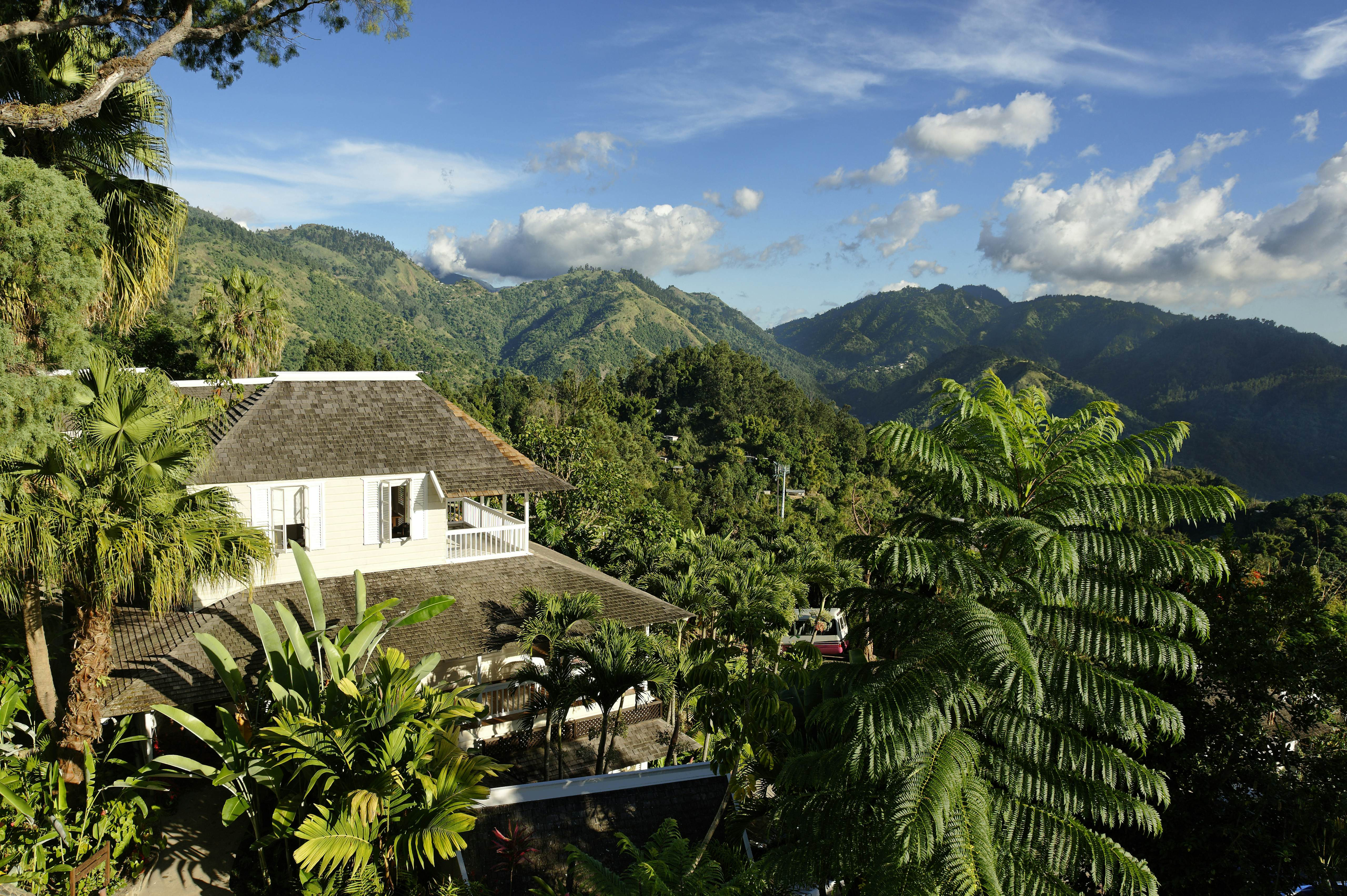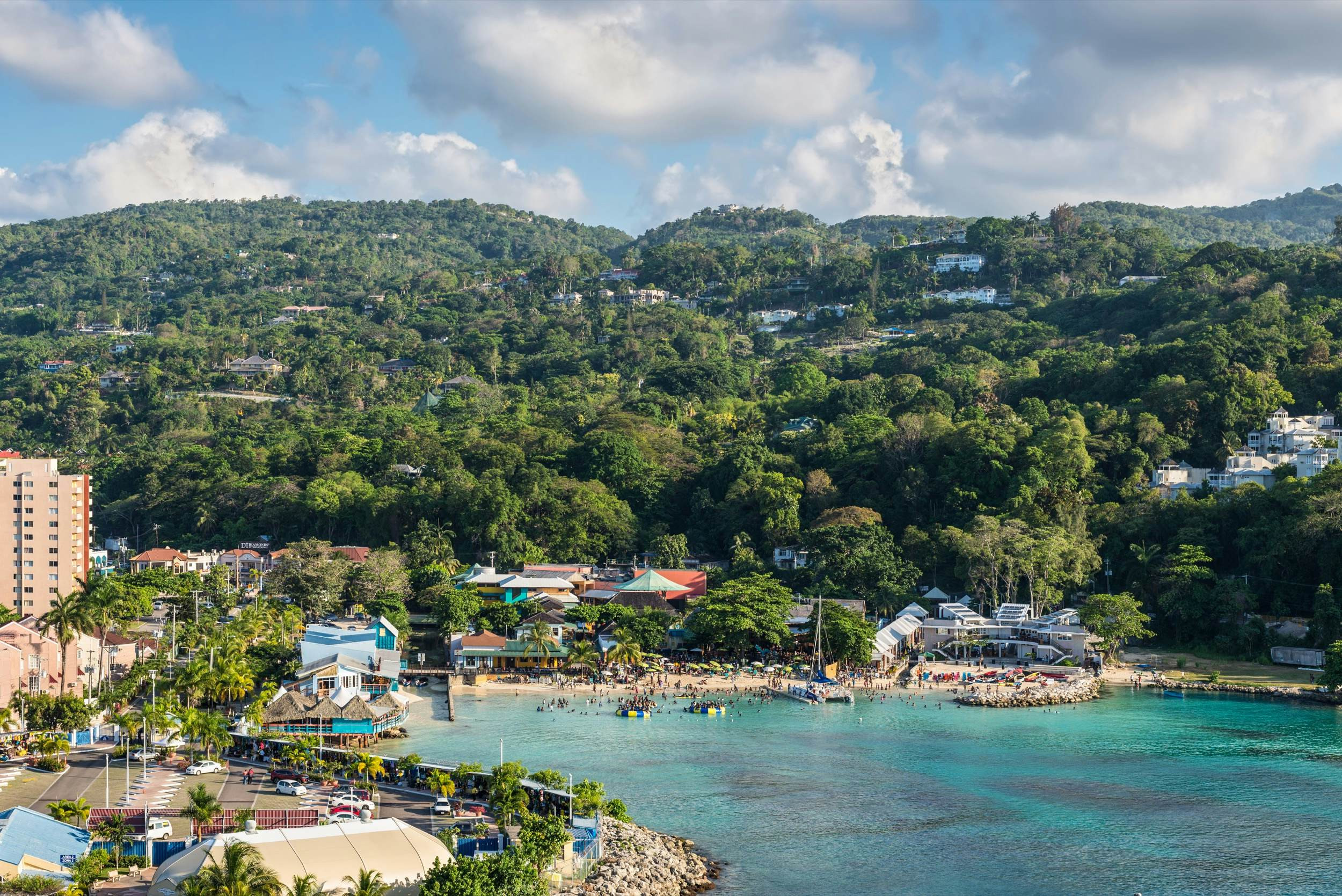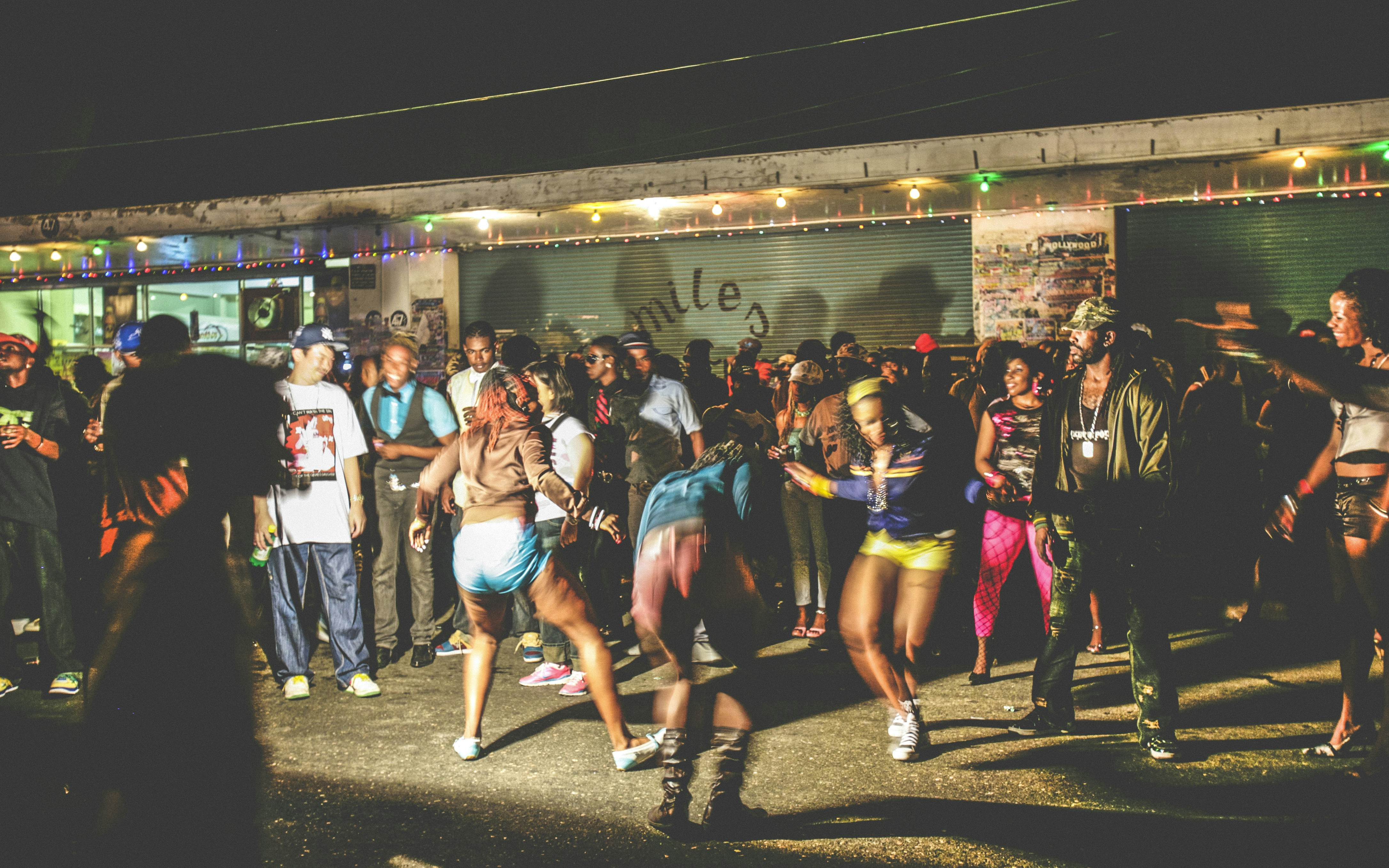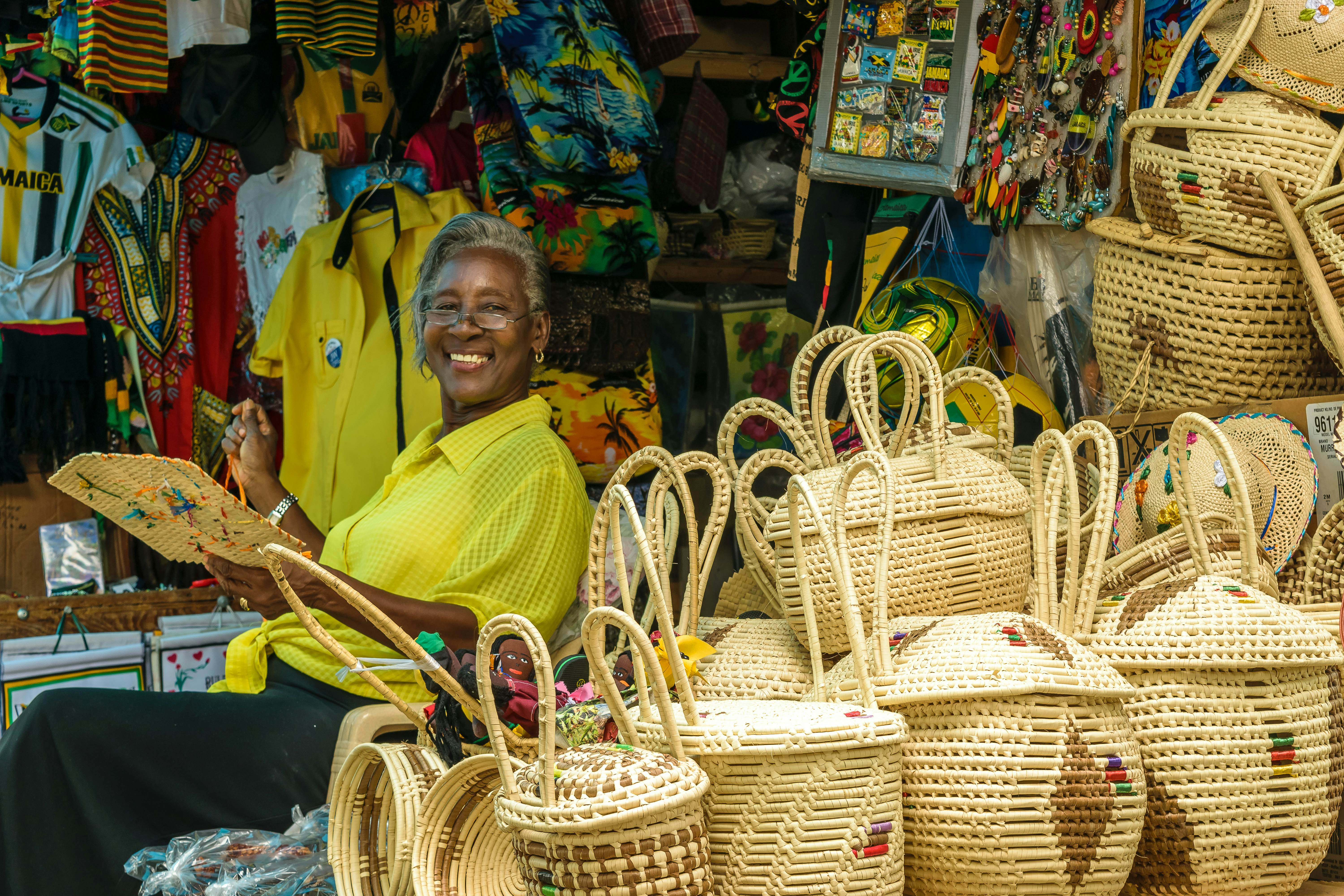Are you dreaming of a Jamaican getaway filled with reggae rhythms, stunning beaches, and mouthwatering cuisine? SIXT.VN helps you prepare for an unforgettable trip with essential tips and insights. From navigating local customs to ensuring your safety, we’ve got you covered with expert travel advice. Discover how to experience the best of Jamaica with confidence, including advice on local transportation and the best places to visit!
1. Choosing The Right Jamaican Destination
Jamaica is a pretty large island with so much to offer, so the best place for you to stay really depends on what you like to do. If you are the type of person to be obsessed with the beach, then you may want to go to Negril or the North Coast.
- Negril and the North Coast: These locations are ideal for beach lovers and water sports enthusiasts.
- Montego Bay and Ocho Rios: This location is great for those who are looking for a balance of dining, nightlife, and accessibility to natural attractions.
- Kingston: This is the capital of Jamaica. It is best suited for music lovers because it is the heart of Jamaica’s music scene.
- Treasure Beach and Port Antonio: If you’re looking for a low-key vacation, this place offers you the best laid-back vibes.
 House surrounded by greenery
House surrounded by greenery
2. Packing A Mosquito Net
While mosquitoes in Jamaica don’t carry malaria, there are periodic dengue fever outbreaks. Not all hotels and guesthouses provide mosquito nets.
- Bring Your Own Net: Ensure you’re protected, especially in accommodations where nets aren’t standard.
- Avon Skin So Soft: It is considered to be the best repellent for no-see-ums (midges). They are tiny biting insects near the water, and their bites are incredibly itchy.
3. Cash Is King in Jamaica
While you can use credit cards at upscale hotels, shops, and restaurants, cash is generally preferred elsewhere in Jamaica, especially Jamaican dollars. In tourist areas, U.S. dollars are also widely accepted.
- ATMs and Currency Exchanges: You can find lots of them in Montego Bay, Kingston, and Ocho Rios. Currency exchanges (cambios) usually give you the best rates.
- Small Change: Best for purchasing from street vendors and using public transportation.
 Beach front with hotels in Jamaica
Beach front with hotels in Jamaica
4. How To Travel During Hurricane Season in Jamaica
The Atlantic hurricane season occurs from early June to late November. There is usually the most storm activity between August and October. Traveling to Jamaica during hurricane season is possible if you take the correct actions:
- Travel Insurance: Take out travel insurance to help cover hurricanes.
- Hurricane Tracker App: Download a hurricane tracker app.
- Hurricane Plan: Decide whether to catch an early flight home or hunker down in case of a hurricane.
- Hotel Safety: Find out if your hotel or guesthouse has a hurricane shelter.
Emergency Supplies: Charge your electronics and make sure to bring a flashlight, first aid kit, and food and water.
| Preparation Step | Details |
|---|---|
| Travel Insurance | Covers hurricane-related disruptions. |
| Tracker App | Stay updated on storm movements. |
| Accommodation Safety | Hurricane shelter, flood/landslide risk, generator availability. |
| Emergency Supplies | Flashlight, first aid, food, and water. |
| Compliance with Orders | Follow all evacuation orders. |
| Relocation to Airport | Consider moving closer to Kingston or Montego Bay airports for easier access post-hurricane. |
| Patience and Flexibility | Be prepared for potential extensions to your trip. |
5. Jamaican Public Transportation
Do you need to hire a car? The short answer is no! The main towns in Jamaica are served by a combination of comfortable, air-conditioned buses, crowded minibuses, and route taxis.
- Public Transportation: It’s entirely possible to get around Jamaica using public transport.
- Road Trips: For exploring more remote destinations, you’ll need plenty of time and patience or your own set of wheels.
- Car Hire: If you plan on taking a road trip, car hire is available at airports in Kingston and Montego Bay.
6. Jamaican Nightlife
Are you ready to let loose and have a night out? Casual summer wear is perfectly acceptable for most occasions. At nightclubs in Kingston and Montego Bay, the vibe is laid-back and nonjudgmental.
- Dancehall Scene: Newcomers can enjoy dancing where locals try to outdo each other when it comes to “whining.”
- Nightclubs: Come as you are and have fun. You might even get some good-natured remarks from regulars if you give the dancing your best shot.
7. Embrace The Jamaican Nightlife Scene
Jamaica never sleeps! Kingston, Negril, Montego Bay, and Ocho Rios offer you the best nightlife experiences.
- Negril: The location is best for beach parties.
- Kingston: Has the slickest nightclubs, the best music events, and street dances.
- Late Nights: Things rarely get going before midnight, and revelers party until sunrise.
 People dancing at a dancehall party in Jamaica
People dancing at a dancehall party in Jamaica
8. Conversing With Strangers In Jamaica
Unlike many other big cities where starting conversations with strangers is a massive faux pas, in Jamaica, the opposite is true.
- Friendliness: Many Jamaicans are genuinely interested in learning more about you and find standoffishness offensive.
- Greetings: Expect to say “good morning,” “good afternoon,” and “good night” a whole lot.
- Respect: Elders are treated with extra respect.
9. Respecting Rastafarianism
Around 1% of Jamaicans practice Rastafarianism. This religious and political movement combines Biblical teachings with seeing Ethiopia as the Promised Land.
- Ganja Use: Rastafarians use ganja to commune with Jah (God).
- Natural Lifestyle: This involves I-tal food (free from artificial additives).
- Rastafari Indigenous Village: This is a more accessible (and much more touristy) experience.
10. Bargaining In Jamaican Markets
Gentle haggling is common and expected when you’re buying souvenirs from individual sellers or shopping in local markets.
- Respect: Be respectful of the fact that this is someone’s livelihood.
- Walking Away: If you’re not happy with the price, walk away with a smile.
 Woman weaving at a vendor stall in Jamaica
Woman weaving at a vendor stall in Jamaica
11. LGBTIQ+ Travel in Jamaica
Jamaican society is largely homophobic, and the gay scene in Kingston is firmly underground.
- Public Displays of Affection: Public displays of affection between gay couples are strongly inadvisable.
- LGBTIQ+ Friendly Hotels: In popular tourist destinations, there are hotels (including some all-inclusive) that welcome LGBTIQ+ travelers.
12. Clean Public Bathrooms in Jamaica
Clean public bathrooms are not easily found. Shopping malls, cafes, and restaurants charge for the use of their facilities, which don’t always meet basic hygiene standards.
13. Jamaican Tap Water: Is It Safe?
Jamaica’s tap water is generally safe to drink in most parts of the island.
- Rural Areas: Avoid faucet water in far-flung rural areas.
- Street Ice: Steer clear of ice sold at street stands as “bellywash,” “snocones,” or “skyjuice.”
- Reusable Flasks: While bottled water is readily available, it’s best to bring reusable flasks with you.
14. Vegetarian and Vegan Dining in Jamaica
Plant-based I-tal (“vital”) food, an essential tenet of Rastafarianism, is widely available and delicious.
- I-tal Cuisine: Expect freshly squeezed fruit juices, plantain fritters, and steamed callaloo.
- Rice ‘n’ Peas: In non-Rasta eateries, rice ‘n’ peas (rice with kidney beans) is the most common accompaniment to most dishes.
15. Jamaican Hustlers
Travelers are extremely likely to encounter constant sales pitches from hustlers, particularly around the major tourist centers of Montego Bay, Negril, and Ocho Rios.
- Firm Refusals: Be firm yet polite in your refusals.
16. Payment Scams on Jamaican Tours
Common scams involve young men offering transportation to a popular tourist attraction (waterfall, swimming hole) and then claiming that you only paid a one-way fee.
- Agreed-Upon Fee: Be clear as to what the agreed-upon fee covers before accepting their services.
17. Gang Violence in Jamaica
Organized crime in Jamaica revolves around gang violence.
- Visitor Safety: Gang violence does not target visitors unless you happen to be in the wrong place at the wrong time.
- Precautions: Take common sense precautions like taking a taxi back at night and carrying as little cash as possible.
18. Safety Tips for Female Travelers in Jamaica
If you’re a single woman, you may well find yourself on the receiving end of anything from flirting to blunt propositioning, which can be wearying.
- Polite but Firm: Be polite yet firm if you are not interested.
- Resort Safety: There have been assaults on female tourists by staff at some of Jamaica’s top beach resorts over the years.
19. Smoking Ganja (Weed) in Jamaica
Smoking “di holy herb” is an integral part of life not just for the Rastafari but also for a substantial number of Jamaicans.
- Decriminalization: Since 2015, ganja has been decriminalized.
- Legal Limits: You may have up to two ounces for personal use without it going on your criminal record.
- Medical Dispensaries: Several medical dispensaries have opened up around the country where visitors may legally purchase marijuana with a doctor’s prescription.
20. Illegal Drugs and Law Enforcement
Besides ganja, cocaine is also widely available in Jamaica.
- Drug Penalties: Penalties for possession of hard drugs are severe.
- Police Encounters: You may encounter roadblocks and random car searches performed by police in combat gear.
- Nightclub Safety: Don’t accept drinks from strangers in nightclubs since date rape drugs are a concern.
21. Driving Safely in Jamaica
Driving in Jamaica is not for the fainthearted.
- Driving Style: Many Jamaicans drive hard and fast, especially around cities and along winding mountain roads.
- Road Hazards: Watch out for drivers overtaking around blind corners and swerving onto the opposite side of the road to avoid ubiquitous potholes.
- Driving Side: Drive on the left.
Top 5 Search Intentions for Traveling to Jamaica
- Safety: Tourists want to know how safe it is to travel in Jamaica.
- Local Customs: Understanding and respecting local customs and etiquette.
- Transportation: Knowing the best ways to get around the island.
- Cultural Experiences: What unique cultural experiences are available in Jamaica?
- Legal Information: Information about laws and regulations, including those related to ganja.
SIXT.VN Can Help You With Your Jamaican Adventure
Planning a trip to Jamaica can be exciting but also overwhelming. Let SIXT.VN take the stress out of your travel arrangements! We offer comprehensive travel services to ensure a smooth and enjoyable experience:
- Airport Transfers: Start your trip with ease with our reliable and comfortable airport transfer services.
- Hotel Bookings: Choose from a wide range of accommodations to fit your budget and preferences.
- Tour Packages: Explore Jamaica’s top attractions with our expertly curated tour packages.
- Custom Itineraries: Let us create a personalized itinerary tailored to your interests and needs.
Contact Information
- Address: 260 Cau Giay, Hanoi, Vietnam
- Hotline/WhatsApp: +84 986 244 358
- Website: SIXT.VN
FAQs About Jamaican Travel
1. Is it safe to drink tap water in Jamaica?
Generally, yes, tap water is safe in most parts of Jamaica. However, it’s advisable to avoid tap water in remote rural areas and stick to bottled water if you’re unsure.
2. What is the best way to get around Jamaica?
You can use comfortable, air-conditioned buses, crowded minibuses, and route taxis to get around Jamaica. If you plan on exploring remote destinations, renting a car may be necessary.
3. Is it okay to smoke weed in Jamaica?
Since 2015, ganja has been decriminalized. You are allowed up to two ounces for personal use without it going on your criminal record. However, smoking weed in public is still illegal and punishable with a fine.
4. What should I know about Jamaican nightlife?
Jamaica’s nightlife is vibrant, especially in Kingston, Negril, Montego Bay, and Ocho Rios. The parties often start late and go until sunrise, with lots of music, dancing, and cultural expression.
5. What are some common scams to watch out for in Jamaica?
Be cautious of payment scams, such as transportation offers to tourist attractions where they later claim you only paid a one-way fee. Always clarify the agreed-upon fee before accepting services.
6. How LGBTIQ+ friendly is Jamaica?
Jamaican society is generally homophobic, and public displays of affection between gay couples are strongly discouraged. However, some tourist destinations offer LGBTIQ+-friendly accommodations.
7. What is I-tal food, and where can I find it?
I-tal food is plant-based cuisine central to Rastafarianism, made without artificial additives. You can find it at Rastafarian eateries and health-conscious restaurants.
8. What should I pack for hurricane season in Jamaica?
If traveling during hurricane season (June to November), pack a flashlight, first aid kit, and a supply of food and water. Download a hurricane tracker app and ensure your travel insurance covers hurricane-related disruptions.
9. Are credit cards widely accepted in Jamaica?
Credit cards are almost universally accepted in upmarket hotels, shops, and restaurants. However, cash (Jamaican dollars) is preferred elsewhere in Jamaica, though U.S. dollars are also commonly accepted in tourist areas.
10. Is it safe for solo female travelers in Jamaica?
If you’re a solo female traveler, you may encounter unwanted attention. Be polite but firm in your refusals if you are not interested, and be aware of potential safety issues at resorts.



